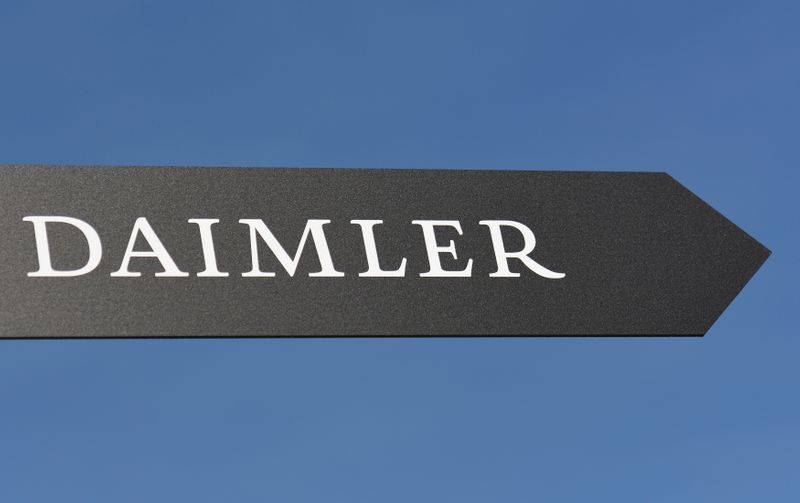By Victoria Waldersee
BERLIN (Reuters) -Daimler Truck will be spun off from Daimler (OTC:DDAIF) on Dec. 10, the commercial vehicle maker said on Thursday as it outlined the cost-cutting measures which it hopes will boost profit margins to a double-digit percentage by 2025.
The truckmaker, which aims to sell 60% electric models by 2030, is certain margins will remain the same or grow as it transitions to electric vehicles, CFO Jochen Goetz said at a presentation during its capital markets day.
Driving an electric vehicle would cost customers the same or less than a diesel alternative in the long run due to lower fuelling costs, CEO Martin Daum reasoned, despite electric models still carrying a far heavier price tag upfront.
Daimler Truck's first battery-electric truck, the eActros, costs roughly three times its diesel equivalent.
"Cents per mile is the key question," Daum said. "The biggest intangible is the price and cost for energy and CO2."
HIGHER PRICES, LOWER COSTS
The commercial vehicle maker, the world's largest but currently reporting lower margins than rivals, is targeting 9% profit margins in Europe, 10% in Asia and 12% in North America by 2025, according to a statement released ahead of the presentation.
Cutting costs, raising prices and focusing on heavy-duty vehicles will bring it closer to that goal, board members said on Thursday.
A planned fixed cost reduction across the business of 15% from 2019 levels by 2025 is progressing faster than planned and will likely be achieved by 2023, the heavy vehicle maker said.
Alongside an already announced 300 million euro ($344 million) cut in personnel costs by 2025, which included reducing management positions by around 20%, Daimler Truck is reducing non-personnel costs by 200 million euros.
Improving market share and performance in Europe has long been a priority for the commercial vehicle maker. Its adjusted return on sales so far this year is 10.8% in North America, 7.2% in Asia and 4.5% in Europe, according to the presentation.
The bus division has reported a 2.6% loss so far this year, but will remain integrated into the business, CEO Martin Daum said when asked about the disparity in performance.
Chip shortages would continue to have a severe impact on revenues into 2022, Geotz said on Thursday, though the hope was that the worst was behind them.

"We have a clear goal ... we are determined to reach higher profitability and win the race to zero-emissions," Daum said.
($1 = 0.8724 euro)